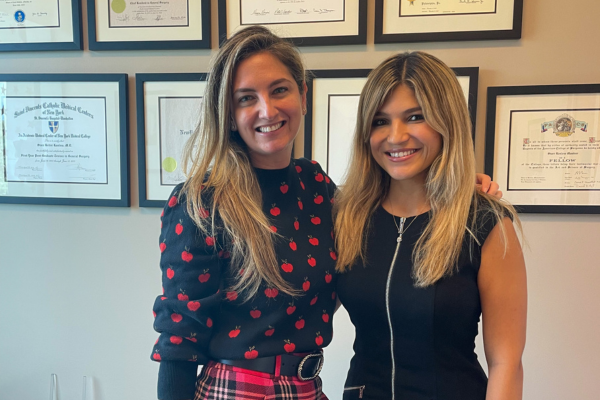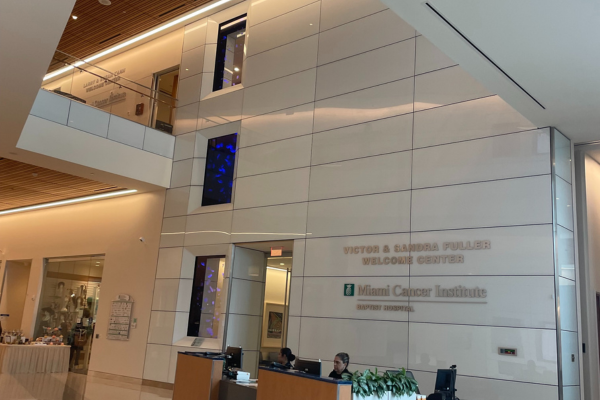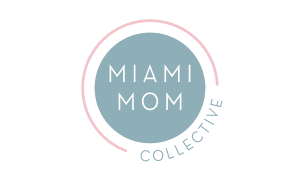This post is brought is sponsored by Baptist Health.
October is Breast Cancer Awareness Month, and while you may see your social media timelines flooded with pink over the next few weeks, it is a great reminder to get checked and know your family history. You may have also seen headlines or heard about how the BRCA gene can play a role in your risk – and that’s why we had a meaningful conversation with Dr. Starr Mautner, a board-certified surgeon with clinical expertise in breast surgical oncology, about the BRCA gene mutation and how it affects Ashkenazi Jewish women in particular.
Ashkenazic Jews are those of French, German, and Eastern European descent. Most American Jews – about 95% – stem from Ashkenazi Jewish heritage. Here is more of our conversation about the link between the BRCA gene and what we need to know.

Why do Ashkenazi Jewish women have a higher risk of breast cancer?
Ashkenazi Jewish women have a higher risk for breast cancer because there is a slightly higher risk of carrying a BRCA gene mutation. If one carries this mutation, it puts them at a remarkably increased risk of developing breast cancer. About 1 in 400 women will carry a BRCA gene mutation in the general population. But if you look specifically at the Ashkenazi Jewish population, it’s 1 in 40. With these numbers, you can see an increased risk of breast cancer.
What is the BRCA gene mutation?
BRCA gene mutation is a phrase you may have heard and have some familiarity with, but what exactly does it mean? “BRCA 1 and BRCA 2 are genes that everyone carries.” Dr. Mautner explains. “You inherit 1 copy from your mother and 1 copy from your father.” These tumor suppressor genes make a protein that will correct DNA damage. If one of those genes is mutated or changes, you’re more apt to have problems repairing DNA damage. That means if a cell has damage, instead of dying, it multiplies and rapidly grows out of control because it does not have that tumor suppressor gene to control it since that gene is mutated.”
Also, Dr. Mautner pointed out that the mutation can be inherited equally from both sides of the family. There’s a common misconception that women believe it’s only inherited from their mother’s history. However, it can also be inherited from your father’s side of the family. While breast cancer is very rare in men (even in men with a BRCA genetic mutation), women can still inherit a BRCA gene mutation from their father.
Genetic Testing & Counseling
Genetic testing is crucial to find out if you have a BRCA gene mutation. You can get tested
through your OB/GYN or at a cancer center. The significant advantage of going to a major
cancer center such as Miami Cancer Institute is that they have genetic counselors.
Dr. Mautner adds, “The most important thing is to receive adequate counseling before and after testing. You want to know what you’re getting yourself into and what you’re going to do with the results of that testing.” The blood and saliva test may be an easy procedure, but the implications of these results can be major. Not everyone diagnosed with a BRCA mutation is mentally prepared to handle that information. That’s why Miami Cancer Institute takes genetic testing very seriously and counsels patients BEFORE testing.
The other advantage of going to a cancer center is that they test for upwards of 88 additional gene mutations and variants. Typically, testing and screening start at age 40. However, carriers of genetic mutations need to be screened starting at age 25-30. Women with close family history should begin screening at 35.

You test positive for BRCA gene mutation – what now?
Once you know you have a BRCA mutation, you should receive genetic counseling to talk with your counselor about what you’re at risk for. The action plan depends on the individual situation, especially the patient’s age. There are two traditionally recommended routes for people with a BRCA gene mutation:
1) High-risk screening programs
Patients receive six months of alternating mammograms and breast MRIs in a high-risk
screening program for breast cancer. Usually, it is a yearly year, but high-risk patients can
develop interval cancer quickly. These screenings can detect something in its early stages.
High-risk screenings do not prevent cancer, but can catch it at an early stage. Also, high-risk cancer prevention programs like Miami Cancer Institute provide tamoxifen for some instances. This hormone therapy can treat and prevent breast cancer by blocking estrogen. However, it is only a fit for women who do not plan on becoming pregnant, as it can cause congenital disabilities.
2) Preventative Measures
Patients have options to prevent cancer when they have a BRCA gene mutation: A patient
should see a breast specialist and a gynecologic oncologist to talk about risk-reducing surgery. Prophylactic surgery is the most aggressive measure to decrease the risk of breast and/or ovarian cancer, which means preventatively removing the breast or gynecological tissue (fallopian tubes and ovaries). This is a very personal decision. Some want to be proactive. Others may still want kids, or the timing is not right. For these, the institute follows up with high-risk screening and offers risk-reducing options.
Prophylactic surgery can reduce breast cancer risk from 70% to single digits.
However, Dr. Mautner emphasizes that prophylactic surgery makes the most sense when the time is right. “While it is the most aggressive measure, it is also the most effective.” It can reduce the risk from 70% to single digits. Once someone has a preventative mastectomy, they no longer need mammograms or MRIs, so it takes out much of the anxiety of screening every six months. Angelina Jolie is a famous example of undergoing a preventative mastectomy. This is a major surgery, which is why Miami Cancer Institute does not take these lightly and has come up with innovations such as a nipple-sparing mastectomy.
BRCA and ovarian cancer
Regarding gynecologic cancer, removing the tubes and the ovaries reduces the risk of ovarian cancer, which often develops in the fallopian tubes. Ovarian cancer is difficult to find in screening, so it is important to take preventative measures if there is a strong history of ovarian cancer. One option is to remove tubes and wait to remove ovaries if they’re not ready for menopause. Removing tubes and ovaries at an earlier age also reduces breast cancer, so the timing is a personal decision. Some patients will get their gynecology surgery first. Others will do it in reverse because they’re young. They’re still thinking of having another child, so they remove their breast tissue, and 5-10 years down the line, they remove their ovaries and fallopian tubes. If you are not ready for breast surgery, removing the tubes or ovaries can be helpful to cut the cancer risk.
Fertility/Family planning
Family planning plays a huge role in what decision a woman with a BRCA gene mutation takes. Especially in communities like the Orthodox community, family planning is very important. Dr. Mautner states that she has seen unfortunate cases where women waited to get pregnant but developed aggressive breast cancer during the pre- and post-natal phases that could have been prevented with a prophylactic mastectomy. One option for carriers who still want to get pregnant is to take the breast tissue out first and the gynecologic tissue later. Another interesting fact that Dr. Mautner mentioned is that you can detect and take out the embryos that carry a BRCA gene mutation through IVF. However, screening before IVF is necessary to ensure the patient does not already have cancer. If you’re trying to get pregnant and inject hormones into yourself, you will have vast spikes of estrogen that will speed up the spread of the tumor.

Dr. Mautner highly recommends that everyone get tested, especially the Ashkenazi Jewish
community and those with a strong family history. Everyone else should get regular breast
cancer screenings, especially those over the age of 40. She highly recommends doing so at a major cancer center, such as Miami Cancer Institute, where counseling is also provided. People who have a BRCA gene mutation should: 1) either go through a high-risk screening, which only reduces the risk but does not fully prevent it, or 2) go the more effective route with prophylactic surgery.
If you’re due for a mammogram for want to explore more about the BRCA gene mutation and the services offered at the Miami Cancer Institute, visit their website.
October is Breast Cancer Awareness Month
As women, let’s encourage one another to stay current on our mammograms. One way we can do that is to recognize the importance of Breast Cancer Awareness Month.
Here are a few ways you can join the Breast Cancer Awareness movement:
- Schedule your mammogram every October.
- Call a friend to check on them and see if they have scheduled their annual visit.
- Check on a friend or family member who may have experienced breast cancer to encourage them.
- Join Miami Mom Collective and Baptist Health at the Moms & Mamms Event on October 12th. This event will give attendees an exclusive behind-the-scenes look at what to expect when preparing for a mammogram, including a live Q&A with healthcare experts and a fun evening of self-care, including mini massages and professional headshots.
















